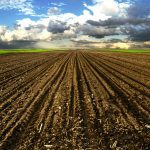As a child, Rick Andrews could see the future. “I was one of those very fortunate people who knew what I wanted to do at a very young age,” he says. By the time Andrews was in his pre-teens, he had become enamoured with the outdoors and knew he wanted to work in conservation and










